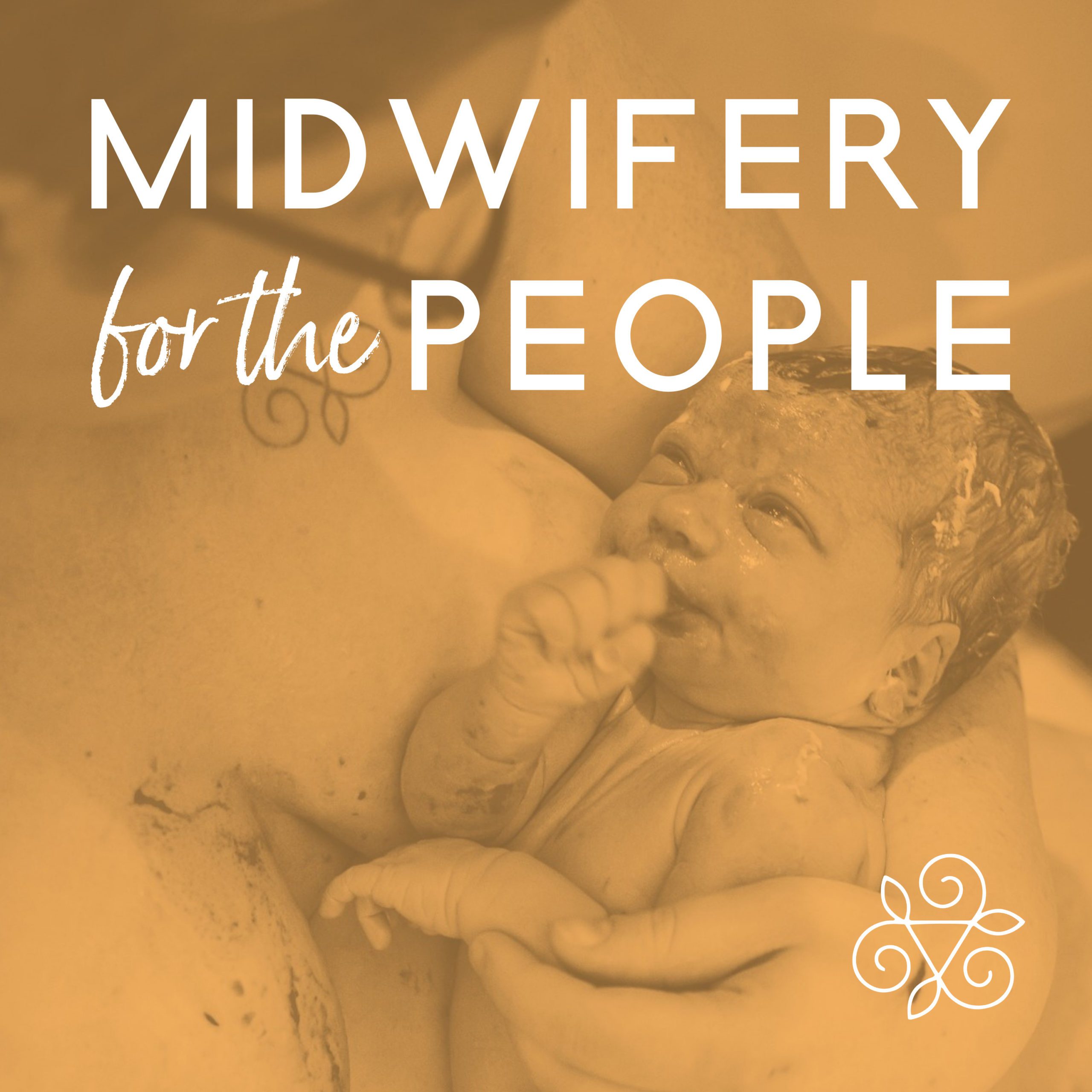Weight Gain Restrictions in Pregnancy
By: Holly Dodd
Though weight gain guidelines in pregnancy have been recommended by obstetric providers for years, less than thirty percent of women currently meet the given standards (Carmichael). This failure of most women to meet the guidelines, many gaining more than the recommended amount, has not resulted in predictably poor birth outcomes from the excessive weight gain. On the contrary, many women gain above the recommended limits and have positive birth experiences and healthy babies. Emphasis on adequate nutrition throughout the childbearing years, with particular attention to the increased nutrient needs during pregnancy proves to be of greater importance than encouraging maternal weight gain to fit within prescribed parameters.
Currently ACOG recommends a set of weight gain parameters based on self reported pre-pregnancy BMI (body mass index). They make no differentiation for a woman’s ethnic background, age, or parity. However, they do adjust the guidelines to accommodate the unique needs of mothers of multiples. Typically, underweight, normal weight, overweight, and obese women are instructed to gain 28-40 lbs, 25-35 lbs, 15-25 lbs, and 11-20 lbs respectively (ACOG). Applying weight gain parameters such as these offers providers a measurable variable with which to evaluate pregnancy during the prenatal period.
ACOG makes these recommendations in an effort to help women avoid the assumed risks of too little or too much weight gain and excessive postpartum weight. Presented risks of gaining less than the recommended amount are SGA (small for gestational age) babies, pre-term labor, and problems with breastfeeding. When a woman gains more than the recommended amounts, presented risks include LGA (large for gestational age) babies, fetal macrosomia, shoulder dystocia and blood glucose effects of gestational diabetes. Alleged risks to the mother include hypertension, pre-eclampsia, gestational diabetes and excess postpartum weight.
Despite the risks noted in current recommendations, the majority of women continue to gain outside the recommended amounts. In a sample of 7002 women with positive birth outcomes, data shows sixty percent gained weight in patterns labeled high risk during the prenatal period, yet all had positive outcomes (Carmichael). Based on a compilation and review of available research on the topic, the relationship specifically between gestational weight gain and birth outcomes is small (Rasmussen). Only a few risks are positively corroborated among the available existing studies. Proven risks of above recommended weight gain include increased risk of c-section delivery, and excessive postpartum weight retention (Rasmussen). Consequently the increased risk of c-section delivery may have more to do with the birth philosophies of the attending physician’s recommendation when approaching women with excessive weight gain (Goer 172). The relationship between weight gain and both hypertension and gestational diabetes has not been proven or refuted positively, but it is notable that pre-pregnancy BMI is a more accurate predictor of complications, including those just noted, than the amount of weight gained during pregnancy (Rasmussen).
Of much greater importance than weight gain, attention to good maternal nutrition during childbearing years and throughout pregnancy can help ensure a healthy pregnancy for mother and baby. If dietary choices are sound throughout pregnancy, weight gained will be different than weight gained from only junk food (Frye 245). Healthy women with healthy diets may even have large babies, but there is a difference between a large healthy baby and a large baby due to poorly controlled diabetes (Frye 246). A woman, who is malnourished due to eating empty calories or perhaps just from being afraid of gaining weight and not eating enough at all, runs a greater risk of having an undernourished baby. Risks of a small baby (less than 2500 g) include poor brain development, mental issues, vision and hearing defects, and poor growth and development (Frye 247). The Brewer Pregnancy Diet guidelines identify the following negative effects of a malnourished mother: toxemia, anemia, pre-pregnancy separation of the placenta and longer, more complicated labor and delivery (Brewer). A mother who is restricting her weight gain may drastically curb caloric intake late in pregnancy if she finds she is approaching her “limit”, thus inhibiting caloric intake just at the time that the baby needs the nutrients most for brain development (Brewer). Mothers need individualized care, not blanket recommendations. A woman cared for as an individual who is eating nutritious foods to match her appetite has a greater chance for positive birth outcomes (Viswanathan).
Emphasis on adequate nutrition is key to a healthy pregnancy and good birth outcomes. A growing number of women of child bearing age are overweight and obese, and evidence does show that women with BMIs above the normal range are more likely to experience poorer pregnancy outcomes including hypertension, pre-eclampsia, gestational diabetes, and higher postpartum weight that is harder to lose (Rasmussen).Educating all women on maintaining a nutrient dense diet throughout the childbearing years is a great way to help women enter pregnancy in a healthy state of being. Howewver, pregnancy is no time to begin a diet; regardless of a woman’s health status upon entering pregnancy, she must either begin or maintain a healthy lifestyle to ensure a healthy baby. Growing babies require a mother to be consuming a greater number of calories, but more importantly, greater amounts of essential nutrients including vitamins, minerals, fluids, protein, fats and carbohydrates. Mothers in tribal cultures, consuming traditional diets, often have healthy pregnancies, positive birth outcomes and favorable postpartum periods (Goldsmith 140). These mothers are not counting calories or tracking weight gain, but they are eating real foods and little, if any, junk food (Goldsmith 140). Health care providers can help women have effective and adequate weight gain by simply focusing more on what mothers are eating, through food diaries and nutrition education.
Women are not currently staying within the prescribed guidelines. More emphasis on these guidelines will not result in greater compliance. Research has proven neither the positive existence of the perceived risks for women not in compliance, nor the elimination of these risks when compliance does occur. Women are gaining within the range and still having large babies from time to time; women are gaining outside the range and having perfectly normal pregnancy outcomes. Emphasis on adequate nutrition throughout the childbearing years, with particular attention to the increased nutrient needs during pregnancy is of greater importance than encouraging maternal weight gain to fit within prescribed parameters. Let’s put the effort where it is more impactful and most important. Let’s teach women how to eat in pregnancy and let them decide how much.
Bibliography
American College of Obstetricians and Gynecologists. “Weight Gain During Pregnancy”. Committee
Opinion. Vol. 548. Jan 2013. Web.
Buckley, Sarah J. Gentle Birth, Gentle Mothering: A Doctor’s Guide to Natural Childbirth and Gentle\ Early Parenting Choices. N.p.: Celstial Arts, 2009. 50-52. Print.
Carmichael, Suzan et al. “The Pattern of Maternal Weight Gain in Women with Good Pregnancy
Outcomes”. American Journal of Public Health. (1990) N.p.: n.d. Web.
“Factors Associated with the Pattern of Maternal Weight Gain During Pregnancy”. Science Direct. N.p.
n.d. Web.
Frye, Anne. Holistic Midwifery, a Comprehensive Textbook for Midwives in Homebirth Practice. Vol. 1. N.p. Labrys, 1998. 244-247. Print.
Goer, Henci . Obstetric Myths Versus Research Realities: A Guide to the Medical Literature. N.p. Bergin and Garvey, 1995. 157-178. Print.
Goldsmith, Judith. Childbirth Wisdom from the World’s Oldest Societies. East West Health Books. 1990 Print.
Hart, Gail. Research Updates for Midwives: Some Thoughts on the Best of the Evidence. Vol 1 & 2. Revised. N.p.: Gail Hart, 2012
Rasmussen, Kathleen M. et al “Results from the Evidence-Based Report on Outcomes of Maternal Weight Gain.” Weight Gain During Pregnancy: Reexamining the Guidelines., U.S. National Library of Medicine, 2010, www.ncbi.nlm.nih.gov/books/NBK32805/.
Viswanathan, Meera. “Outcomes of Maternal Weight Gain.” National Center for Biotechnical Information. U.S. National Library of Medicine, n.d. Web.
“Weight Gain.” The Brewer Pregnancy Diet, drbrewerpregnancydiet.com/id68.html.





+ show Comments
- Hide Comments
add a comment